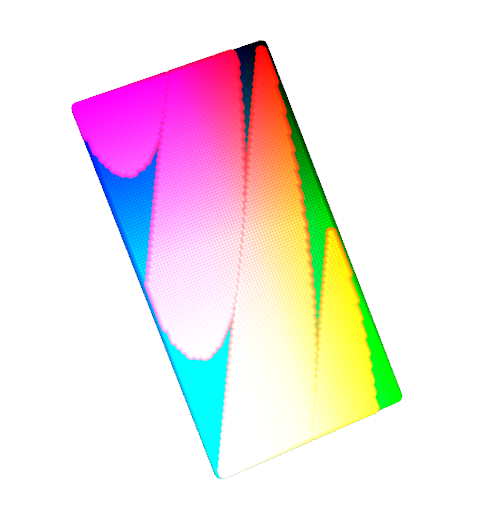|
Size: 410
Comment:
|
Size: 2416
Comment:
|
| Deletions are marked like this. | Additions are marked like this. |
| Line 1: | Line 1: |
| This page has links to very short demos/tutorials in EMAN2. | = EMAN2 TUTORIALS = |
| Line 3: | Line 3: |
| == Using e2.py == * [:EMAN2/Galleries/Testimages:Generate and display an EMAN2 test image] |
== Beginners (introductory tutorials) == |
| Line 6: | Line 5: |
| * [:EMAN2/Tutorials/RotateTranslate:Rotate and translate an image] | ''Please note that we are continuously developing and updating the tutorials. Items that are greyed out are planned but the tutorials have not yet been completed. If you have a request for a particular tutorial please feel free to email sludtke@bcm.edu.'' |
| Line 8: | Line 9: |
| * [:EMAN2/Tutorials/AddAndMultiply:Add images, and multiply by a constant] | |
| Line 10: | Line 10: |
| * [:EMAN2/Tutorials/ri2ap:Convert a real/imaginary image into an amplitude/phase image and vice versa] | ==== Single particle analysis (SPA) - 2D particles ==== * [[EMAN2/Eman1Transition|EMAN1 to EMAN2 Transition Guide]] * The old SPR tutorial (2008 Workshop) - [[attachment:workflow_tutorial_2010_08_25.pdf|Full tutorial on single particle reconstruction using the workflow]] (uses [[http://blake.grid.bcm.edu/dl/data/workshop5.iso|Workshop demo data DVD]]) * [[Ws2011/Eman2|The NEW tutorial from the 2011 EMAN2 workshop, compatible with EMAN 2.01 (Data on same page)]] * [[OxfordWs2012|The Tilt Validation tutorial from the Oxford 2012 EMAN2 workshop, compatible with EMAN Nightly Build (Data on same page)]] * [[attachment:rct_tutorial.pdf|Tutorial on using EMAN2 for Random Conical Tilt reconstructions|&do=get]] * [[attachment:rct_tutorial_sim.pdf|Tutorial on using EMAN2 for Random Conical Tilt reconstructions using simulated data|&do=get]] ==== Single particle tomography (SPT) - 3D particles ==== * NEW single particle tomography USERS' GUIDE. [[attachment:e2spt_users_guide.pdf| e2spt_users_guide.pdf|&do=get]] ==== 2D assessment of heterogeneity ==== * [[attachment:population_dynamics_2009_11.pdf|Full tutorial on 2-D analysis for assessment of structural heterogeneity and population dynamics]] (under construction) ==== Adding an e2program to the program manger workflow ==== * [[EMAN2PMWorkflow|Modifying the EMAN2 projectmanager workflow]] == Advanced (EMAN2 through the ''e2.py'' Python prompt) == * [[EMAN2/Galleries/Testimages|Generate and display an EMAN2 test image]] * [[EMAN2/Tutorials/RotateTranslate|Rotate, translate, scale or mirror an image]] * [[EMAN2/Tutorials/AddAndMultiply|Add and multiply images, add and multiply by constants]] * [[EMAN2/Tutorials/ri2ap|Convert a real/imaginary image into an amplitude/phase image and vice versa]] * [[EMAN2/Tutorials/iter_pixels|Iterate through the pixels of an image]] * [[EMAN2/Tutorials/make_a_projection|Make a projection of a 3D model, project through the asymmetric unit]] {{attachment:2d_image_3dplot_2.png}} * [[EMAN2LogLevel|Change log level in EMAN2]] |
EMAN2 TUTORIALS
Beginners (introductory tutorials)
Please note that we are continuously developing and updating the tutorials. Items that are greyed out are planned but the tutorials have not yet been completed. If you have a request for a particular tutorial please feel free to email sludtke@bcm.edu.
Single particle analysis (SPA) - 2D particles
The old SPR tutorial (2008 Workshop) - Full tutorial on single particle reconstruction using the workflow (uses Workshop demo data DVD)
The NEW tutorial from the 2011 EMAN2 workshop, compatible with EMAN 2.01 (Data on same page)
Tutorial on using EMAN2 for Random Conical Tilt reconstructions
Tutorial on using EMAN2 for Random Conical Tilt reconstructions using simulated data
Single particle tomography (SPT) - 3D particles
- NEW single particle tomography USERS' GUIDE.
2D assessment of heterogeneity
Full tutorial on 2-D analysis for assessment of structural heterogeneity and population dynamics (under construction)
Adding an e2program to the program manger workflow
Advanced (EMAN2 through the ''e2.py'' Python prompt)
* Generate and display an EMAN2 test image
* Rotate, translate, scale or mirror an image
* Add and multiply images, add and multiply by constants
* Convert a real/imaginary image into an amplitude/phase image and vice versa
* Iterate through the pixels of an image
* Make a projection of a 3D model, project through the asymmetric unit

